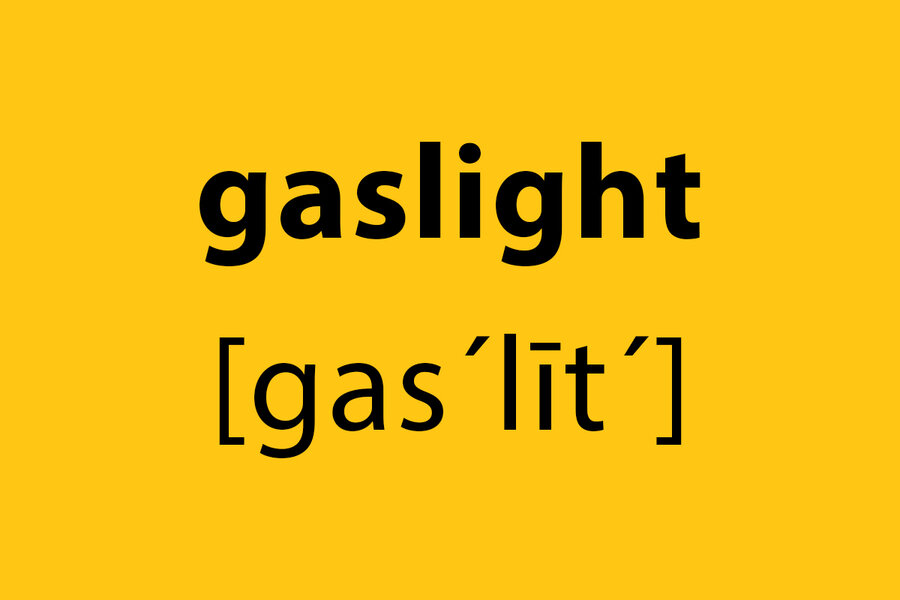This is the first in a series of posts that will break down the vocabulary for techniques which racists often use when confronted about their actions.
When I attended graduate school I was one of only three women in my program. Because I attended a Seminary with aspirations to someday work on staff in an Evangelical denomination, I was often the target of backhanded comments and micro-aggressions from both professors and fellow classmates. Some of my classmates even went so far as to accuse me of living a life of sin because they could not fathom that a woman would ever be called by God into ministry.
An example that I remember clearly involved a visiting lecturer addressing the class and speaking about challenges we would face in vocational ministry. As he talked about our futures as pastors of churches, he looked directly at me and said, “Or….whatever you are going to do.” He then carried on with his lecture as if I were not in the room. When I pointed out to my male peers the ways in which I was treated I was often told, “You’re being too sensitive.” Or “They didn’t mean it that way.” Or even, “Well, what did you expect? You are a woman in a male dominated school!” I found myself questioning these experiences and wondered if perhaps I was being too sensitive and if I simply needed to either get thicker skin or drop my pursuits.
There is a term for what was happening to me that I did not have in my vocabulary at the time. This term is gaslighting. Gaslighting is making someone question their own reality. It can also present as someone who pushes a false narrative at another group (or a person) which leads them to doubt their perceptions and become misled, disoriented or distressed.
Gaslighting is a very popular technique that people often used when a person of color brings up an incidence of racism. Oftentimes, when someone is accused of racism, they will shift the scrutiny back to the accuser, forcing them to question their experiences and reassess whether or not they had the proper response. This happens often and we have seen this play out locally both on social media and within BOE meetings.
One example that comes to mind was when a woman on our local Newtown Neighbors Unite Facebook page posted a picture of the tire marks in her yard with her Black Lives Matter sign lying down. It was clear that this neighbor had her sign targeted by someone who did not agree that Black lives actually matter. However, when she posted about this event, many of our “Newtown Neighbors” quickly chimed in with how it could not possibly be a racist act. They listed many excuses. Perhaps the driver was drunk? Maybe he mistakenly drove through the yard? Or perchance it was randomly knocked down in the wind and another car drove over the lawn separately? Neighbor after neighbor spoke up about their own experiences dealing with racism in Newtown. Each one was told that it couldn’t be true because many neighbors had not personally experienced it themselves.
When people experience racial gaslighting they often begin to doubt their instincts and question their own experiences. When Black people are continually questioned about their own personal experiences, people around them may view that person as angry and defensive. In reality, they are simply speaking truth about what they regularly deal with.
Other examples of racial gaslighting that we have witnessed in our town include:
- A Black woman writing a letter to the editor of the local paper about actions at a BOE meeting and then white citizens claiming loudly that she was wrong.
- Members of the community showing up to support local children speaking to the BOE about racism they have experienced and being told that their clapping is disruptive and aggressive.
- Republican Candidates refusing to participate in a public forum stating that they are being bullied when members of the community ask them questions about DEI initiatives.
- Angry members of the community proclaiming ad nauseum that “racism doesn’t exist” in our community after members speak of specific examples their children have experienced.
How can we combat gaslighting? Simple, speak up and stand beside. If you are white, use your voice and your presence to collaborate someone’s experience. Listen to your friends and ask them questions such as, “Are you okay?” or “How can I help you?” Please don’t ask, “Are you sure it was meant that way?” or “Why does it always have to be about race?” Doing so only adds to the many examples of gaslighting happening in Newtown.
